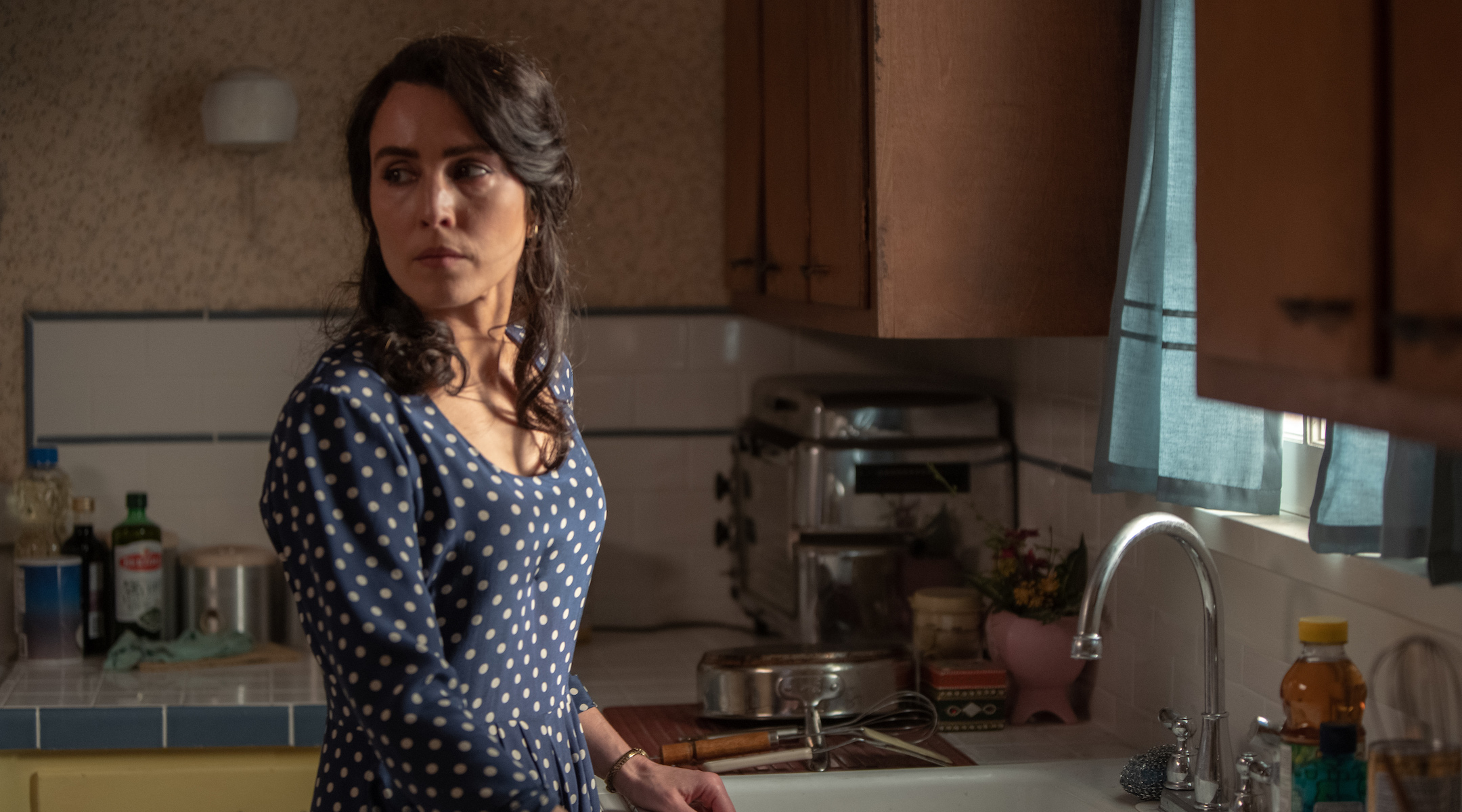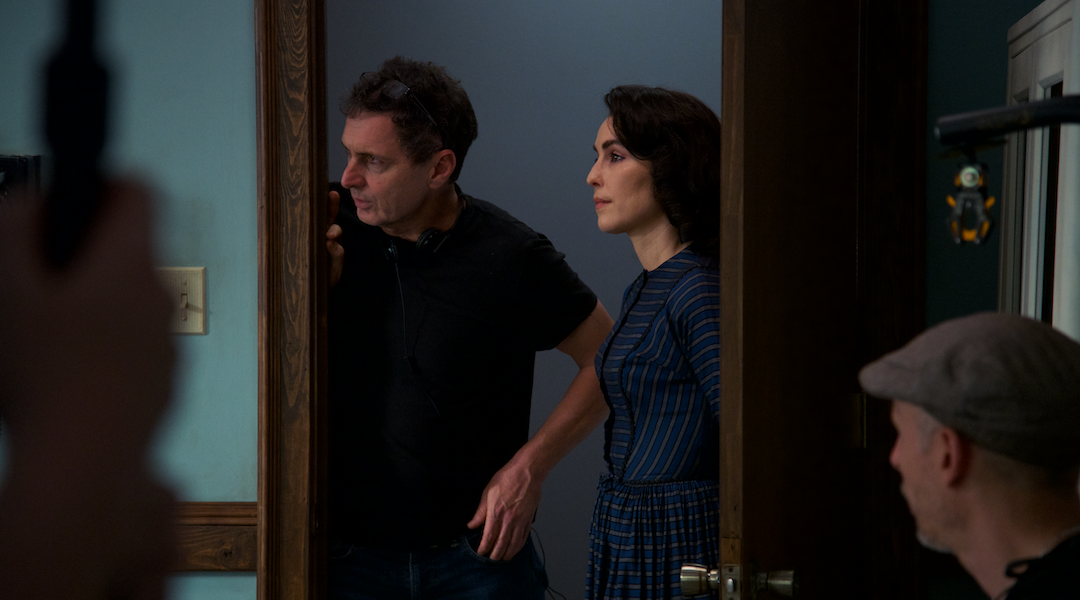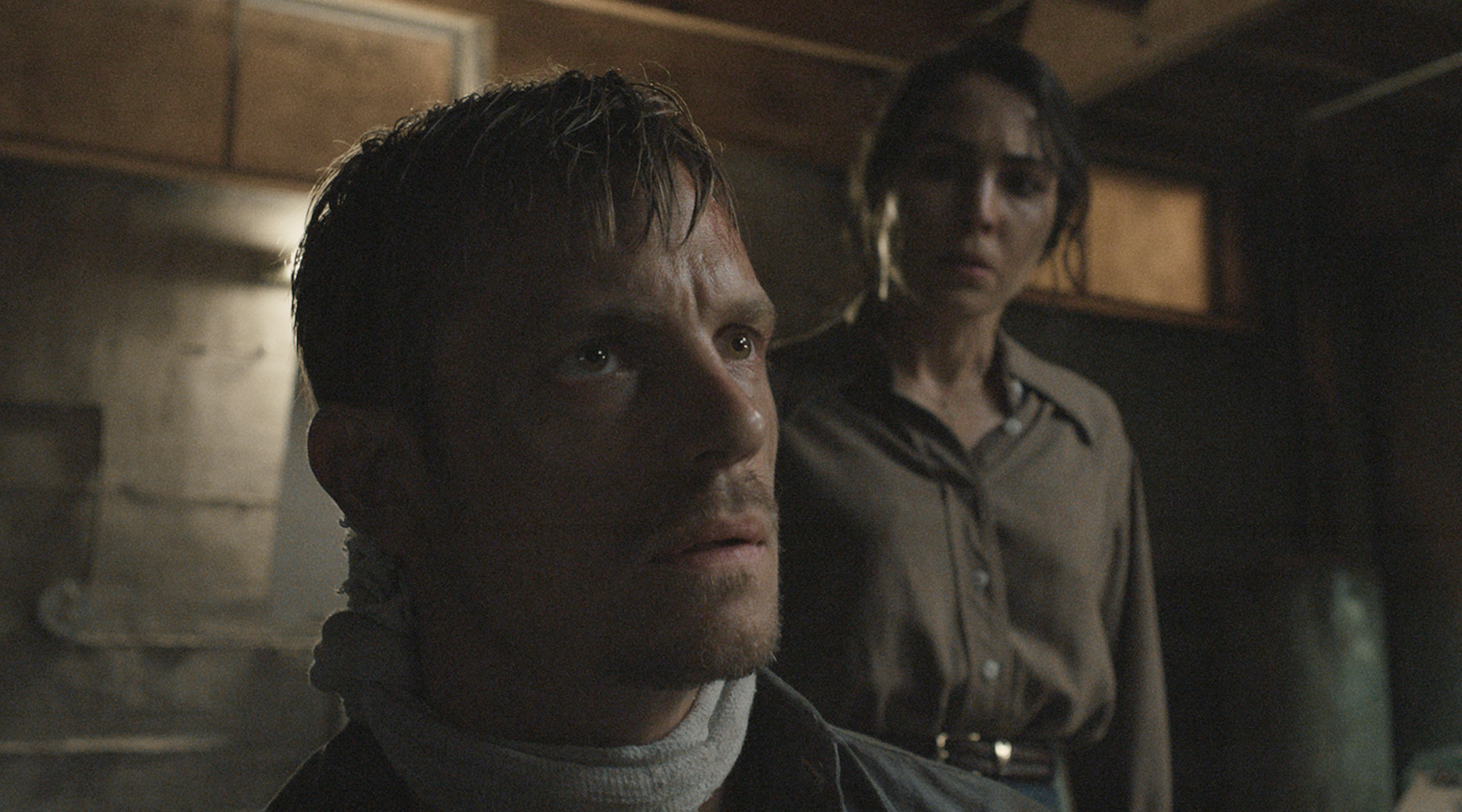(JTA) — When Israeli director Yuval Adler saw the script for “The Secrets We Keep,” a thriller about a woman who kidnaps a man she believes was her Nazi torturer during World War II, he knew he wanted to make some changes.
The story revolved around a Jewish woman who endured horrors at a German concentration camp — a plot Adler found a little stale. He started talking to the lead actress, Noomi Rapace, known for her starring role in the original Swedish “Girl With the Dragon Tattoo” films, about her personal life to see if they could freshen it up with details from her own story.
To Adler’s surprise, Rapace told him that she believes she has Roma ancestry and she was emotionally connected to their story. So they changed the Jewish character into a Roma one.
The result is a film that grapples with Holocaust trauma from a perspective different from the Jewish experience — but one that in many ways was frighteningly similar.
“I think it’s great because this is a story that you usually don’t see,” Adler said.
The trauma concept looms large in the film, which debuts Friday on On Demand platforms. Rapace stars as Maja, a Romani woman who lives with her American doctor husband in a small town in the U.S. South in the 1950s. Maja sees a man who she is convinced is a former Nazi who was part of a group of German soldiers that raped and killed members of her family — including her sister — during a wartime incident that she relives constantly in traumatic flashbacks. She decides to kidnap him.

Noomi Rapace stars as Maja in “The Secrets We Keep.” She believes she has some Roma heritage. (Patti Perret/Bleecker Street)
Once Maja has the man tied up in her basement, she has to convince her husband that her hunch is true though she has no tangible evidence. As she bombards the man with questions (and some physical abuse), her motives become unclear, and her husband, who has never heard Maja’s war stories, begins to wonder if trauma has clouded her judgment.
The movie is inspired by the 1994 film “Death and the Maiden,” which was itself an adaptation of a play by Ariel Dorfman. Roman Polanski directed the earlier version, which is set in South America — a continent known for housing many Nazis after the war. Besides Rapace, “The Secrets We Keep” stars Swedish action movie heartthrob Joel Kinnaman as Thomas, the kidnapped man, and Chris Messina as Maja’s husband, Lewis.
Thomas’ wife, whom Maja befriends as she holds her prisoner hostage, is Jewish — that adds another layer of doubt to the suspicious plot.
Adler, who has a doctorate in philosophy and worked as a sculptor, has become one of the best-known Israeli directors working in the U.S., thanks to the success of his acclaimed 2013 debut “Bethlehem” — an Israeli police thriller that won the equivalent of six Israeli Oscars and was his country’s entry in the Academy Awards’ foreign film race.
He also directed the 2019 film “The Operative,” which stars Diane Kruger as a Mossad agent working in Iran. He is currently adapting Israeli journalist Ronen Bergman’s book about the Mossad, “Rise and Kill First: The Secret History of Israel’s Targeted Assassinations,” for an HBO series.
For this film, Adler dove into researching the Roma experience during the Holocaust. The Roma people, who descend from an area of India and often are derogatorily referred to as “gypsies” for their nomadic ways, lost about 25% of their population, or approximately 250,000 people, to the Nazis, according to the U.S. Holocaust Memorial Museum.
But they weren’t all kept in concentration camps, Adler noted — often they were the target of war crimes out in the open. The incident Maja lived through was based on a real war crime that took place in eastern Romania.

Yuval Adler, left, directs Rapace on set. (Patti Perret/Bleecker Street)
Growing up in Israel, the home for many Jewish Holocaust refugees, Adler was surrounded by stories of World War II and its trauma. In fact, Adler’s mother’s family took in two Jewish children after the war who had lost their parents. She would go on to write a popular novel based on their story titled “The Brothers of Auschwitz” that was translated recently into English.
But Adler was more excited about the script for its riveting story set in a closed, thrilling environment. And for its mysterious qualities.
“I’m very attracted to stories where you have a couple, and suddenly one person says to the other, ‘There’s something you don’t know about me.’ And the other person says, ‘Wait a minute, maybe I don’t even know who this other person is,” he said.
The filmmaker isn’t even that interested in the debate over how, or if, revenge should be taken against Nazis, which is raised these days in everything from video games to productions like Amazon’s “Hunters.” He describes himself as more of a “street fighter” than a “high road guy.”
What Adler is interested in, though, is how to judge people today for sins committed in a different time and how to preserve the record of history.
“How do you deal with the past?” he asks. “You can acknowledge that stuff was bad in the past, or are you going to try to rewrite and destroy and eliminate it?”
JTA has documented Jewish history in real-time for over a century. Keep our journalism strong by joining us in supporting independent, award-winning reporting.






